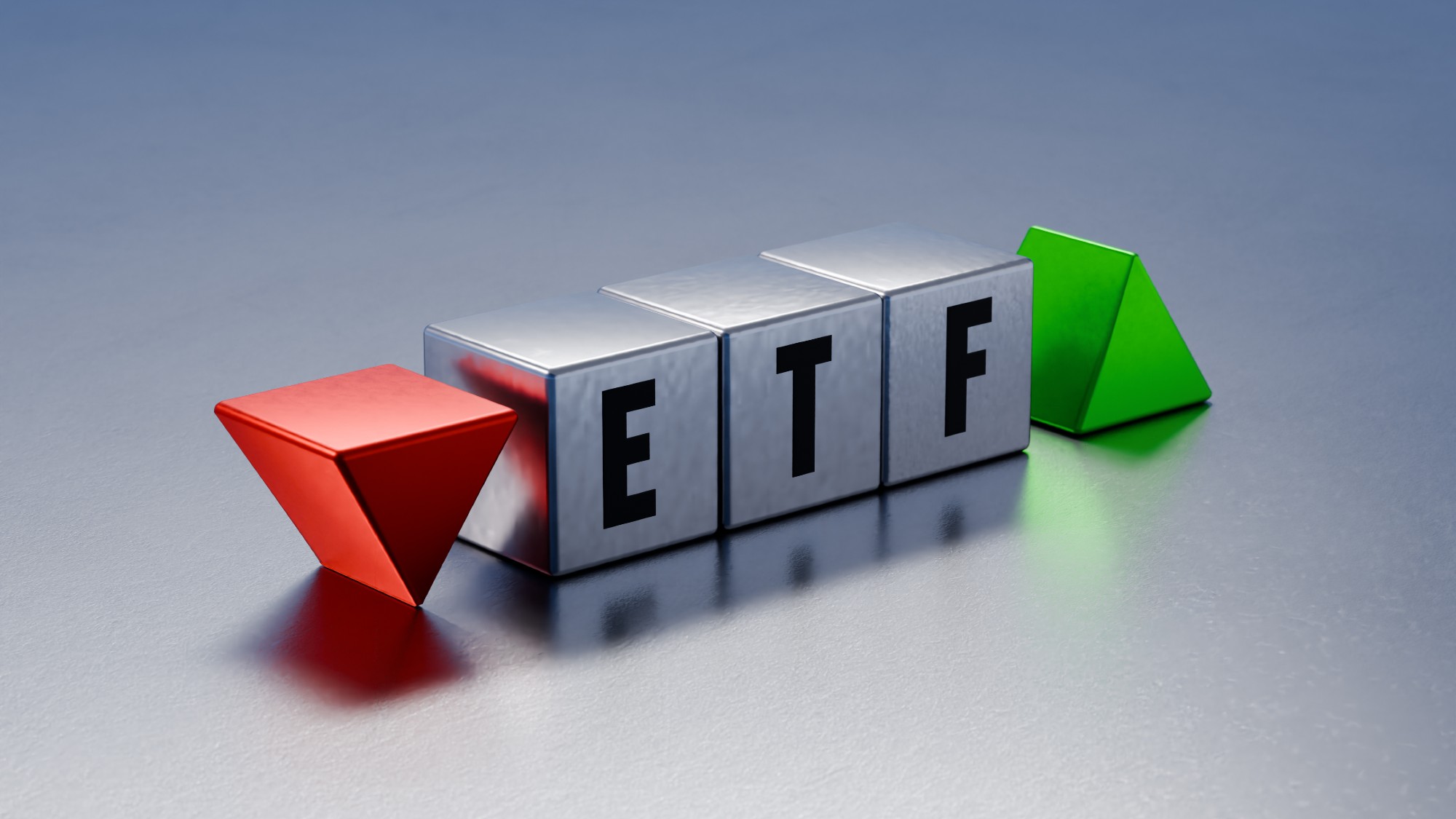A world of choice in uncertain markets
Why a globally diversified basket of equities might be worth the risk over the long term

There’s a lot of truth in the old saying that investing is not about market timing but time in the market. If you have a sufficiently long time horizon for investing via a diversified basket of stocks then you should – if the past is anything to go by – benefit from a return that is in excess of cash (at the very least). The events in Ukraine are of course deeply disturbing and one doesn't have to be a glass half-empty type to think the impact of said events on stockmarkets may get even worse in the next few months. That said, stockmarkets do have a tendency to be turbulent, volatile and unpredictable. Indeed, that very volatility is why you might reasonably expect to receive a superior return over cash and even bonds.
Look at a chart for a well-diversified global index such as the MSCI ACWI (which includes some emerging markets) over the last 10 years and you might be struck by two observations.
Risky but rewarding
The Week
Escape your echo chamber. Get the facts behind the news, plus analysis from multiple perspectives.

Sign up for The Week's Free Newsletters
From our morning news briefing to a weekly Good News Newsletter, get the best of The Week delivered directly to your inbox.
From our morning news briefing to a weekly Good News Newsletter, get the best of The Week delivered directly to your inbox.
Firstly, there have been at least eight sell-offs where the index has lost around 10% from peak to trough during those 10 years, some of which I would wager investors have already completely forgotten about. In January 2018 for instance, this widely used index peaked then spent much of the year declining until it hit a low in late December 2018, after a near-20% decline. Other lowlights include the global financial crisis and the Covid panic.
However, look at that chart again and you'd also be struck by the general trend - upwards, substantially so, with the index more than doubling over the last decade (MSCI ACWI factsheet, 28/2/22).
The next ten years might be different of course, but history suggests that equities are worth the risk, provided you are patient. A study by investment firm Moneyfarm (Moneyfarm, 15/3/22) looked at returns from investing in the MSCI World Index (another global index) since 1970. This analysis tried to calculate the odds of losing money by investing in developed market equities on a year-by-year basis. In the first five years, the likelihood of a loss was 15% to 35%. But once you get past seven years, that probability slips to below 5%. By 12 years, it’s almost non-existent.
Stocks for the long run
A free daily email with the biggest news stories of the day – and the best features from TheWeek.com
To repeat: equities are always risky and always volatile, and if your time horizon is below five years (i.e., you might need that money urgently within the next five years), then maybe equities are not right for you. Any length of time beyond that and equities, especially a portfolio of internationally diversified equities, can produce very superior returns.
The evidence for this comes from the Credit Suisse Global Investment Returns Yearbook produced by academics Elroy Dimson, Paul Marsh, and Mike Staunton.
Their most recent report looked at 35 national markets (Credit Suisse Global Investment Returns Yearbook 2022), 23 of which start in 1900. The bottom line? Over the long-time span of the study, the extra return from investing in risky assets versus low-risk bonds was 3.2% a year, while the historical equity risk premium against treasury bills (short-term government debt) was 4.6%. In future, the academics expect a lower equity vs bills premium of around 3.5%.
They also note that from 1900 to 2021, the annualised real (i.e. after inflation) return for investing in UK equities has been about 5.4% a year, though that dropped to 3.8% from 2002 to 2021.
Take a global view
These studies also emphasise the importance of international diversification. Between 1974 and 2021, in terms of risk vs reward (as measured by the Sharpe ratio), UK investors have benefited from investing internationally. In fact, the only investors not to do so were Americans, who would have been better off sticking with their home market, which has produced stunning results. That’s also why most global indices are heavily exposed to US markets – US equities represent between 50% and 70% of the value of most global indices because it’s the most successful, liquid, and accessible market in the world.
How can investors build an international portfolio? You can buy a fund which simply tracks a global stockmarket index, but there are trends that an 'automated' index tracker might miss. For example, the bull market of the last decade has been powered by high-growth tech stocks. By contrast, cheaper stocks in less glamorous sectors underperformed. In the next ten years that pattern – growth good, value bad – might (or might not) reverse sharply, as it has in recent months. If inflation stays high for years, new trends may emerge. We might even see new geographical patterns emerge alongside those changes in style (value vs growth). Maybe Europe is too cheap, maybe China might continue becoming more important?
Active global equity fund managers argue that they might be better equipped to chart these changing patterns. But whatever the future holds one thing is for certain – a portfolio of diversified equities is likely (though by no means certain) to provide a superior return compared to the boring alternatives of cash and bonds. And if equities are a smarter home for the long term, then an international mix of businesses in one easy-to-access portfolio is probably a great place to start.
To find more about Alliance Trust visit alliancetrust.co.uk/rise
When investing, your capital is at risk. The value of your investment may rise or fall as a result of market fluctuations and you might get back less than you invested. TWIM is the authorised Alternative Investment Fund Manager of Alliance Trust PLC. TWIM is authorised and regulated by the Financial Conduct Authority.
Alliance Trust PLC is listed on the London Stock Exchange and is registered in Scotland No SC1731. Registered office: River Court, 5 West Victoria Dock Road, Dundee DD1 3JT. Alliance Trust PLC is not authorised and regulated by the Financial Conduct Authority and gives no financial or investment advice.
-
 Political cartoons for February 21
Political cartoons for February 21Cartoons Saturday’s political cartoons include consequences, secrets, and more
-
 Crisis in Cuba: a ‘golden opportunity’ for Washington?
Crisis in Cuba: a ‘golden opportunity’ for Washington?Talking Point The Trump administration is applying the pressure, and with Latin America swinging to the right, Havana is becoming more ‘politically isolated’
-
 5 thoroughly redacted cartoons about Pam Bondi protecting predators
5 thoroughly redacted cartoons about Pam Bondi protecting predatorsCartoons Artists take on the real victim, types of protection, and more
-
 What are the best investments for beginners?
What are the best investments for beginners?The Explainer Stocks and ETFs and bonds, oh my
-
 Received a windfall? Here is what to do next.
Received a windfall? Here is what to do next.The Explainer Avoid falling prey to ‘Sudden Wealth Syndrome’
-
 How to invest in the artificial intelligence boom
How to invest in the artificial intelligence boomThe Explainer Artificial intelligence is the biggest trend in technology, but there are fears that companies are overvalued
-
 What’s the difference between a bull market and bear market?
What’s the difference between a bull market and bear market?The Explainer How to tell if the market is soaring or slumping.
-
 Is it a good investment to buy a house?
Is it a good investment to buy a house?The Explainer Less young people are buying homes, opting to rent and invest in the stock market instead
-
 What is day trading and how risky is it?
What is day trading and how risky is it?the explainer It may be exciting, but the odds are long and the risks high
-
 What to know about investing in ETFs
What to know about investing in ETFsThe Explainer Exchange-traded funds can be a great choice for beginners
-
 Retail investors drive a flurry of IPOs
Retail investors drive a flurry of IPOsFeature After years of slowness, companies like Klarna and Gemini are reviving the IPO market